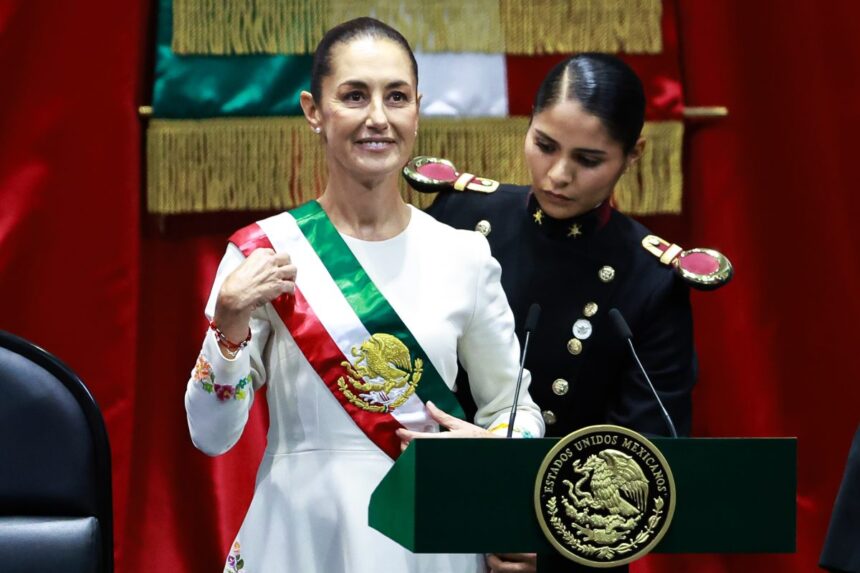Taking the Helm Amid Challenges- Claudia Sheinbaum
Claudia Sheinbaum was sworn in as Mexico’s first woman president on Tuesday, assuming leadership during a time of significant challenges, including violence from organized crime and a heavy deficit in Latin America’s No. 2 economy. The 62-year-old scientist and former mayor of Mexico City will serve a six-year term lasting until 2030.
Support and Expectations
During the inauguration ceremony held in Mexico’s Congress, Sheinbaum’s supporters chanted “President! President!” and “Long live Mexico!” as she took the oath of office. Political analysts anticipate that Sheinbaum will need to work quickly to reassure investors, particularly following the controversial judicial reform enacted by her predecessor, Andres Manuel Lopez Obrador.
Investor Sentiment and Economic Outlook
Markets are watching closely as Sheinbaum is expected to establish a “predictable and investment-friendly policy and regulatory framework.” Alberto Ramos, head of Goldman Sachs Latin American economic research, highlighted the importance of disciplined budget management, progress on public security, and maintaining the integrity of key institutions, particularly state energy firm Pemex.
Impact of U.S. Elections
The upcoming November presidential elections in the United States, Mexico’s largest trading partner, could increase market volatility. Former President Donald Trump, who has threatened to raise tariffs on Mexican goods if elected, could further complicate the economic landscape.
Upcoming Budget Scrutiny
Sheinbaum’s administration will present its first budget before November 15, which will be scrutinized for indications of her commitment to reducing the fiscal deficit from 5.9% to 3.5% of gross domestic product (GDP).
Continuity with Change
Lopez Obrador, who served from 2018, achieved significant economic changes, such as doubling Mexico’s minimum wage and reducing poverty and unemployment. His achievements contributed to Sheinbaum’s landslide victory in the June elections, as she has promised a “continuity with change” approach.
Economic Challenges Ahead
Despite her positive intentions, Sheinbaum inherits the largest budget deficit since the 1980s and an economy with slow growth. Experts suggest that a tax reform may be necessary to boost revenues; however, Sheinbaum has indicated that she does not plan for a comprehensive tax overhaul, focusing instead on improving tax collection efficiency at customs.
Financial and Economic Landscape
According to economist Bernardo Keiserman from investment bank Bradesco BBI, Sheinbaum must implement a substantial fiscal consolidation to maintain the current positive outlook from the markets. However, this will be challenging as the economy is already weakened, with the central bank recently reducing its GDP growth forecast for the year to 1.5% from 2.4%, and for 2025 to 1.2%.
Pemex and Nearshoring Challenges
The incoming administration also faces a considerable financial burden from Pemex, one of the world’s most indebted oil companies. Although nearshoring—the trend of relocating production closer to primary markets—has attracted investments to Mexico, Sheinbaum will encounter challenges in boosting foreign direct investment, particularly in light of the controversial judicial reform enacted near the end of Lopez Obrador’s presidency. This reform, which allows for the election of judges by popular vote, has raised concerns among investors and was criticized by the U.S. ambassador to Mexico for jeopardizing the rule of law.








